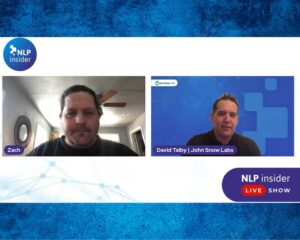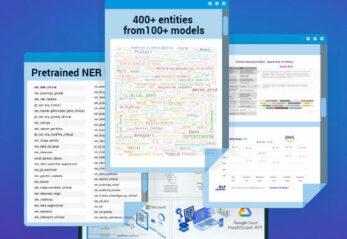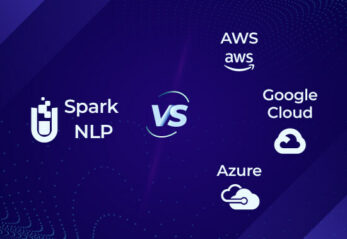John Snow labs, the NLP company, developer of the Spark NLP Library, and host of the Healthcare NLP Summit, today announced the findings of the annual AI in Healthcare Survey Report. Conducted by Gradient Flow, the research explores the trends, tools, and behaviors around artificial intelligence (AI) use among healthcare and life sciences practitioners.
Applications of AI in healthcare pose a number of challenges unique to the industry. As such, the shift from use by data scientists to domain experts is continuing to grow. More than half (61%) of respondents identified clinicians as their target users, followed by healthcare payers (45%) and health IT companies (38%). This paired with significant developments and investments in healthcare-specific AI applications and availability of open source technologies are indicative of wider industry adoption.
“As survey results have suggested over the past two years, we’re seeing AI applications transition from exclusively tools for data scientists to medical professionals and even patients, greatly broadening access to AI,” said David Talby, CTO, John Snow Labs. “With technologies like NLP making it possible to bridge the gaps between structured data, unstructured clinical and biomedical text, and other data modalities like imaging and voice, not only can we enable delivery of better patient care, but we can put that power directly in the hands of healthcare practitioners.”
Other survey findings include:
- When asked what technologies they plan to have in place by the end of 2022, technical leaders cited data integration (46%), BI (44%), NLP (43%), and new this year, data annotation (38%).
- Locally installed commercial software (37%) and open source software (35%) were the most popular forms of software being used to build healthcare AI applications. This shows a 12% decline in use of cloud services (30%) from last year’s survey (42%).
- A majority of respondents (53%) chose to rely on their own data to validate models, rather than on third-party or software vendor metrics. Mature organizations (68%) relied even more heavily on using in-house evaluation and tuning models themselves.
- Production readiness was the top criteria used to evaluate machine learning, NLP, and computer vision solutions among technical leaders, while respondents from mature organizations prioritized the ability to train and tune models.
- When evaluating locally installed software libraries or SaaS solutions, both technical leaders and respondents from mature organizations cited the availability of healthcare-specific models and algorithms as the most important requirement.
The findings of the survey will be presented at the upcoming Healthcare NLP Summit taking place virtually April 5-6 in a keynote presentation titled, “Industry Survey Analysis: AI in Healthcare 2022.” Hosted by John Snow Labs, the free event is dedicated to NLP applications in healthcare and life sciences, showcasing best practices, real-world case studies, and the latest technology in use today. Free registration is now open.
The full 2022 AI in Healthcare Survey Report can be downloaded here.
Follow @JohnSnowLabs and #NLPSummit on Twitter for the latest news and updates.
To learn more about Spark NLP for Healthcare or to start your free trial, visit: https://www.johnsnowlabs.com/healthcare-nlp/






























